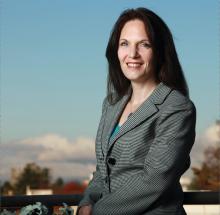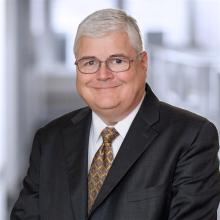Global Ethics Board Proposes Significant Revisions to International Independence Standards
The International Ethics Standards Board for Accountants® (IESBA®) today released two Exposure Drafts (EDs):
- Proposed Revisions to the Non-Assurance Services Provisions of the Code
- Proposed Revisions to the Fee-Related Provisions of the Code
The EDs are aimed at strengthening the non-assurance services (NAS) and the fee-related independence provisions of the International Code of Ethics for Professional Accountants (including International Independence Standards) (the Code). The EDs represent a key milestone in two major strategic commitments of the IESBA in its current strategy and workplan.
Among the key changes proposed to the NAS provisions are:
- A prohibition on providing NAS to an audit client that is a public interest entity (PIE) if a self-review threat to independence will be created;
- Further tightening of the circumstances in which materiality may be considered in determining the permissibility of a NAS;
- Strengthened provisions regarding auditor communication with those charged with governance (TCWG), including, for PIEs, a requirement for NAS pre-approval by TCWG; and
- Stricter requirements regarding the provision of some NAS, including certain tax and corporate finance advice.
The NAS ED also includes enhanced guidance to assist firms in evaluating the level of threats to independence when providing NAS to audit clients.
Among the key proposed changes to the fee-related provisions are:
- A prohibition on firms allowing the audit fee to be influenced by the provision of services other than audit to the audit client;
- In the case of PIEs, a requirement to cease to act as auditor if fee dependency on the audit client continues beyond a specified period; and
- Communication of fee-related information to TCWG and to the public to assist their judgments about auditor independence.
The Fees ED also includes enhanced guidance on identifying, evaluating and addressing threats to independence in relation to other fee-related matters, including the proportion of fees for services other than audit to the audit fee.
“Auditor independence, in fact and in appearance, is fundamental to public confidence in the financial statement audit, and in turn in the integrity of the entire financial system,” said IESBA Chairman Dr. Stavros Thomadakis. “Our proposals are a timely response to growing public perceptions about the need to reinforce auditor independence, as well as specific concerns from the regulatory community and the Public Interest Oversight Board, especially in relation to audits of PIEs. The more stringent provisions concerning the offer of NAS to PIE audit clients, as well as the transparency and other substantive proposals concerning fees, further raise the bar on auditor independence in the public interest.”
The development of the proposals in the two EDs has benefited from cooperation with the International Auditing and Assurance Standards Board (IAASB) within the established coordination framework of the two Boards. The IESBA is strongly committed to continuing its engagement with the IAASB in finalizing the proposals.
The IESBA will host webinars during the comment period to provide an overview of the NAS and Fees EDs. Follow the IESBA on Twitter (@Ethics_Board) for updates on how to register for these events.
The IESBA welcomes feedback on the NAS and Fees EDs from all stakeholders, including investors and other users of financial statements, the corporate governance community, the regulatory and audit oversight community, preparers, firms, national standard setters, IFAC member bodies, academics and others.
How to Comment
The IESBA invites all stakeholders to comment on the NAS and Fees EDs by visiting the IESBA’s website. Comments are requested by June 4, 2020 (Due to the COVID-19 pandemic the original comment deadline of May 4 has been extended to June 4).
About the IESBA
The International Ethics Standards Board for Accountants (IESBA) is an independent global standard-setting board. The IESBA serves the public interest by setting ethics standards, including auditor independence requirements, which seek to raise the bar for ethical conduct and practice for all professional accountants through a robust, globally operable International Code of Ethics for Professional Accountants (including International Independence Standards).
The IESBA believes a single set of high-quality ethics standards enhances the quality and consistency of services provided by professional accountants, thus contributing to public trust and confidence in the accountancy profession. The IESBA sets its standards in the public interest with advice from the IESBA Consultative Advisory Group (CAG) and under the oversight of the Public Interest Oversight Board (PIOB).
Proposals Relating to Non-Assurance Services and Fees Further Reinforce Auditor Independence



